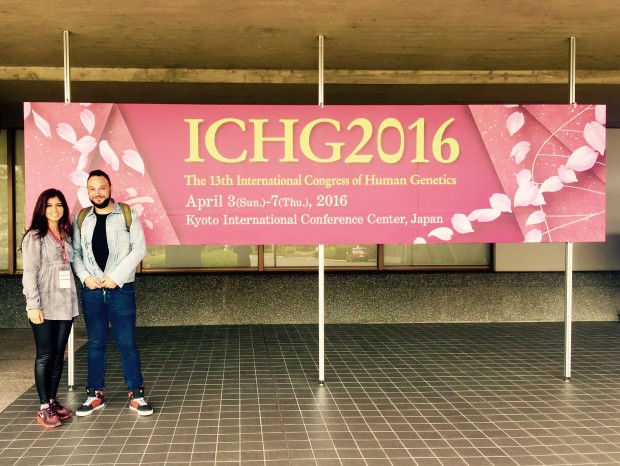
The Near East University Faculty of Medicine has been represented at the 13th International Congress of Human Genetics, which was held in Kyoto, Japan via two studies.
According to the press info release issued by the Directorate of Press and Public Relations of Near East University, all human and medical genetics communities, including human genetics in Europe and American Human Genetic Communities participated in the 13th International Congress of Human Genetics, in Kyoto, Japan, which is held biennially.
Near East University was represented with two scientific studies...
It was revealed that Specialist Dr. Yeliz Cengiz from the Department of Child and Adolescent Psychiatry and Specialist Dr. Mahmut Çerkez Ergören from the Department of Medical Biology of Near East University jointly presented “A Case study on Autisms Spectrum Disorder (ASD) in Rare Genetic Disorder Case”. It was pointed out that since this case was the 2nd case reported in the world, Specialist Dr. Yeliz Cengiz’s presentation drew the attention of neuroscientists. Furthermore, it was stated that the work of NEU Academic Member of Department of Medical Biology, Assist. Prof. Dr. Mahmut Çerkez Ergören, which was addressed as one of the greatest genetic epidemiology studies in Northern Cyprus, titled as “Genetic Mapping of the Cardiology Patients in the Cyprus Turkish Community” had also drawn significant attention of multidisciplinary researchers at the congress. Subsequent to the aforementioned presentation, a joint decision was taken to conduct a meta-analysis with the world’s leading centres and share information, besides making consultations.
Making a statement on the matter, Academic Member of the Department of Child and Adolescent Psychology of Faculty of Medicine of Near East University Dr. Cengiz’s expressed that science now functioned multi-disciplinarily and congresses facilitated the opportunity to share and cooperate across disciplines; therefore creating the opportunity for researchers to develop themselves, besides representing their institutions at international platforms.